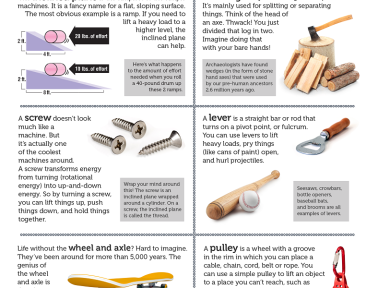The previous installment of this collection on DAP finished with a quote that truly resonated with me. It completely encapsulates the paradoxical setting we find ourselves in today. There’s a well-intentioned thrill to prevent failure, by putting kids in circumstances that really boost the probabilities of failing.
In an interesting TED Talk, What Do Infants Believe?, kid advancement psycho therapist Alison Gopnik points out an intriguing fact regarding mind advancement. Across several animal varieties, “there’s a relationship in between for how long a childhood a species has and how big their brains are contrasted to their bodies, as well as exactly how clever and also flexible they are.”
Simply put, the extra intelligent varieties have a tendency to have longer youth periods. The example she shares is the crow, a bird with a youth as long as two years and taken into consideration instead intelligent, and the residential chicken, which develops in a matter of months and also well … it’s not that brilliant. The difference in childhood years, she claims, is the reason why “the crows end up on the cover of Scientific research, and the poultries end up in the soup pot.”
With this details, it is paradoxical that there are still some who seem to think that the quicker you can relocate your child with childhood years, the more advanced they’ll be.
Discovering and also knowledge are related to that childhood years duration. It takes some time as well as a variety of experiences to fully create a complicated, adaptable mind. There are no extra factors for circumventing childhood years.
That’s why I’m so enthusiastic regarding shielding childhood years and a supporter of Developmentally Proper Method.
When we overlook or disturb healthy and balanced development, we have a tendency to have troubles. Revealing youngsters over the long-term to atmospheres, programs, as well as expectations that are not ideal to their development has some clear impacts.
Right Here Comes Trouble
The initial result is an increase in habits issues. This originates from two fronts.
Initially, children who are given improper scenarios have a tendency to act inappropriately. Too much seat time or job that is past the zone of proximal growth leads to frustration. Kids– specifically those that are more youthful and also much less most likely to be willing or able to verbalize this frustration or problem-solve the circumstance– have a tendency to release this disappointment physically. A child ending up being wiggly, disruptive, or hostile is far more most likely to occur in a classroom that is not developmentally suitable. It’s not structured to fulfill children’ developing requirements or sustain their developing growth.
When requirements aren’t met, you can be fairly particular you will get unfavorable actions. Consider it from a personal level. Just how is your very own habits as well as perspective when you are fed vs hungry, relaxed vs tired, or confirmed vs ignored?
The second method the lack of DAP results in extra behavior problems is in understanding and also strategy. Without DAP we locate ourselves in a society of “Absolutely no Resistance” habits monitoring, where preschoolers are being gotten rid of (yes, removed) at startling prices. (Read my tirade regarding that below.) I’m not suggesting we need to tolerate and also allow poor actions, however when common habits challenges push children out of the really scenario that is intended to support their burgeoning social growth there’s a problem. As well as it isn’t the children.
When we identify particular habits as developmentally appropriate (also when they aren’t socially proper), we can come close to behavior with a teaching attitude. We advertise growth and also development rather than punishing youngsters for undergoing normal growing pains that are developed by their developmental drive to produce training minutes.
A Shaky Foundation
One more unintentional repercussion of a “sooner is much better” strategy is that it often ignores the foundational abilities that are typically developed in very early youth. I clarify it in the context of building a home. People often tend to obtain pretty delighted to see a brand-new framework appear out of the earth where there was once nothing. Hardly ever does any individual state, “Wow, did you see that foundation? It was impressive?” And also yet, what would occur if a building contractor, in his anxiousness to erect the ideal structure immediately, just avoided over this essential action?
While putting a foundation may not be as aesthetically interesting as seeing a building go up in its well-known type, it is important to get it right. No one would ever risk placing hrs of work into developing a residence if it lacked a structure to keep it solid, solid, and immovable. Unfortunately, that’s what occurs when we dive right into mentor children benchmark skills, without identifying the important value of the foundational skills that have to come in the past.
As
just one instance, phonemic understanding has been shown to be an incredibly strong forecaster of reviewing success, as well as the lack of the ability has been connected to checking out struggles. It begins prior to a kid finds out the ABCs as well as is created without ever before checking out a published word. Yet it is a skill that can be taught, if we’ll simply make the effort. Time to speak, check out, sing, and also incantation. Time to just play with words.
But the simpleness of it is not nearly as attractive as seeing kids draw words from a page where none appeared to exist previously, so we’re attracted to avoid it as well as jump on to the skills that are extra noticeable and also widely appreciated as real reading abilities. While that may generate “visitors”, their foundation will be shaky.
If you desire the proper foundation for analysis, take it from reading experts Irene Fountas and also Gay Su Pinnell that claimed it ideal in their (impressive) source, Proficiency Beginnings: A Prekindergarten Manual *:
Comparable fundamental skills are vital for various other learning locations also, and also they are developed– virtually imperceptibly to some– via developmentally ideal, hands-on, playful knowing experiences. If our anxiety is about having successful students in the future, it appears we must provide the right begin today.
Race to the … Bottom?
If we consider other nations that cover the US in the worldwide statistics (PISA scores), it appears we’re trying to reach them by doing the opposite of what they’re doing.
In Finland, for instance, formal, direct guideline doesn’t start till age 7. In the kindergartens and also preschools that beginning that, you won’t discover the country’s next plant of top students drilling with flashcards or poring over worksheets. Most likely, you’ll see them singing, playing, as well as paint. In Finland, the emphasis for early education gets on discovering exactly how to find out. Kids are motivated to experience, explore, and play. The Finns worth the development of inquisitiveness and also social competency in the very early years. They know that the “academics” will come much more conveniently later if the foundation is there. It appears that while we remain in a rush to provide our children way too much too soon, Finland is actually being successful by beginning later.
I was stunned to find out that also Singapore, constantly near the top of international positions, values a social-competency design, all natural advancement, and a play-based structure over academics in the early years. According to the nation’s Ministry of Education and learning (and also of course, you truly must click on this link and review this position declaration):
” Substantially, these Preferred End results emphasi( z) e social abilities as well as perspectives and not so much … academic abilities. This shows the fact that social abilities as well as expressions of communication are of paramount relevance. While fundamental intellectual abilities are very important and need to not be neglected, the long-lasting results of a youngster’s social and emotional proficiency are of also better importance, for the all natural growth of the child. The last identify the effective functioning of an individual greater than his/her INTELLIGENCE or academic expertise. We need to commit more of the moment in pre-school to the purchase of favorable dispositions for this will certainly lug youngsters much as well as prepare them for future learning. We ought to not be preparing children for the next phase in discovering. The pre-school years are important in themselves.” (Emphasis mine.)
If we are indeed so distressed regarding our kids ending up being academically effective, why would certainly we press increasingly for models that seem to directly contradict the programs that have been shown to produce the outcomes we prefer?
I think component of that response lies in tomorrow’s message.
Tomorrow we’ll talk about what is causing our hyper-drive to push children as well much too soon, and also what we can do to repair it. See to it you linger!
* This message contains affiliate links.
The Why We Playletters share this message concerning the significance of developmentally suitable method as well as play in the very early years, written especially for the parents in your education and learning community. Get your very own collection to aid you continually communicate Why We Play.
Bring Amanda to your college or meeting. Discover workshops as well as talking involvements below.
Piggy Financial Institution Photo Source, Structure Photo Source










